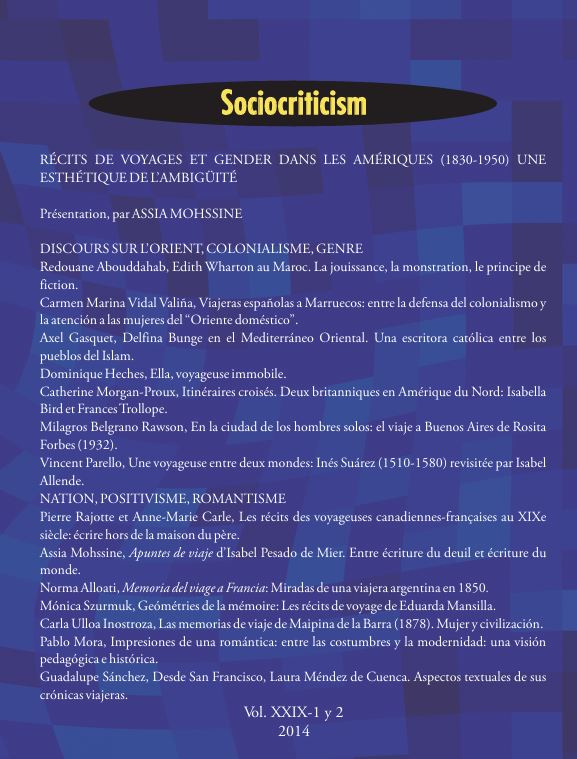Ella, voyageuse immobile
Keywords:
Travel, Patagonia woman German motherAbstract
Ella Hoffman gets to Buenos Aires on February 3rd 1923. With her three daughters, she joins her husband, who has been working as an administrator in a Patagonian farm, for more than two years. There, she settles in an essentially male, rough and harsh universe. Through the collection of letters addressed to her mother, found and published more than fifty years later by her daughter, Ella Hoffman unintentionally delivers an account of her daily life and travels in Patagonia. She gives us a view of this early twentieth-century Argentina’s building, an independent nation-state whose South belongs to foreign powers, the result of politics in favor of the country’s Europeanization. The reality that is given to see is thus a form of reconstruction through a high generational dialogue, full of subtle female sensitivities, in fact some of unconscious but effecting filters.












